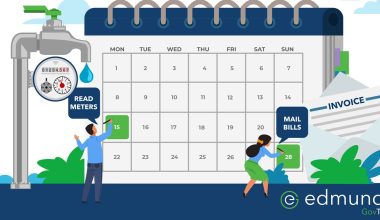In the past, I’ve written about requiring adequate security deposits. That issue touched on the subject of refunding deposits for good credit.
Generally, I’m not a proponent of returning security deposits until a customer closes their account. However, there are cases where adopting a policy of refunding good credit deposits makes sense.
Excessive interest on deposits
Some utilities are required to pay interest on deposits. In many cases, the interest rate they are required to pay exceeds what they are earning from investments.
For example, I’m currently working with a utility that is required by state regulators to pay 4% interest. If you know of a bank where they can invest their deposits and earn that kind of return, I’m sure they would love to hear from you!
In cases such as this, if the expense of the interest paid to customers exceeds their annual bad debts, refunding good credit deposits might make sense.
A bargaining tool with your board
Many utilities still do not require deposits of homeowners. I don’t recommend this and am a strong advocate of the best practice of requiring a deposit of every new customer.
If the only way you can get your board to agree to everyone paying a deposit is to refund good credit deposits after a period of time, then it makes sense to do so. There is no guarantee that every account whose deposit is returned for good credit will pay their final bill. However, it is still a chance worth taking over not having deposits for any homeowners, some of whom are likely to become bad debt accounts.
If you do refund good credit deposits
There are several things to keep in mind if you do refund deposits for good credit:
Insure your refund requirements are stringent enough that you aren’t refunding deposits for eventual bad debt accounts. For example, require a minimum of 24 months of good payment history. Each time your customer pays late, restart the waiting period.
Apply the deposit as a credit to the customer’s account rather than sending a refund check. This way you keep the cash as your customer works off the credit and you save your accounting staff the added workload of writing additional checks.
Verify that the customer doesn’t owe you any other bills. This could be utility bills for other accounts in their name or, for municipalities, unpaid taxes or parking tickets. If the customer does owe another bill, apply the deposit to that debt first and only refund the balance.
Finally, if you do refund deposits for good credit accounts, be sure your policy requires that all accounts on the cut-off list maintain a current deposit.
Update your customer service policy
If you make changes in your deposit policies, be sure to update your customer service policy to reflect the changes.


